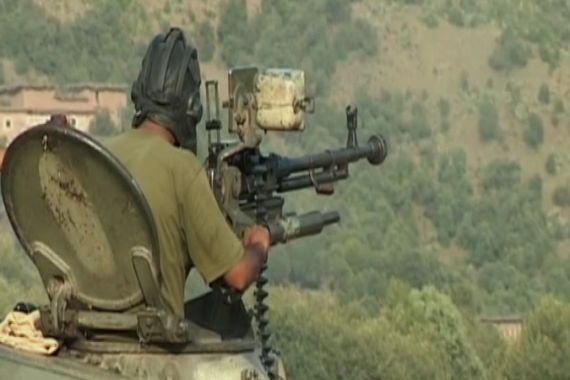The state of Pakistan: 10 years after 9/11
Economic and human costs grow as the country tries to tackle al-Qaeda and mend relations with the US.

Shortly after the September 11th attacks, US President George W Bush made his now famous declaration “You’re with us or you’re with the terrorists”, making it clear to the world that there was no room for neutrality in the so-called War on Terror.
But, behind closed doors, the same message to Pakistan also came with a threat.
In an interview with a US television network in 2006, former President Pervez Musharraf recounted a conversation Pakistan’s then-military intelligence chief had with Richard Armitage, the US deputy secretary of state, in the days after the attacks.
He told the interviewer: “He said, ‘Be prepared to be bombed. Be prepared to go back to the Stone Age’.”
This was the US making it clear, in no uncertain terms, that Pakistan had to join the so-called War on Terror or face a terrible fate – a difficult move for the country, which not only shares its border with Afghanistan, but also recognised the then-Taliban government.
Musharraf’s current spokesman and former military Major General Rashid Quereshi told Al Jazeera: “Suppose Pakistan had said ‘No, we will not help this coalition. We will not help the United Nations. We will not help NATO.’ Pakistan would’ve been an enemy country for the world. And I don’t think Pakistan would’ve survived.”
But many in Pakistan feel the country is worse off since joining the so-called War on Terror.
Costs in billions
In the past decade, some 35,000 people have been killed as a result of fighting in the country, more than 3,000 security personnel have also been killed amid the volatile security situation and the cost to the economy – directly and indirectly – has been a staggering $67bn.
Despite its support for the US, Pakistan has not been shielded from serious accusations.
Scattered throughout the 9/11 Commission Report is overwhelming evidence that the September 11th operation was rehearsed in Pakistani safe houses and financed through Pakistani money-transfer networks.
In short, it is believed that the 9/11 plot was hatched in Pakistan.
So it is perhaps unsurprising that the man who ordered the attacks on that day, Osama bin Laden, was found hiding not far from Islamabad, right under the nose of the Pakistani military – sparking a series of diplomatic rows that have badly frayed relations between Washington and Islamabad.
As the US recalibrates its presence in the region, Pakistan continues to find itself facing accusations that it is playing a double game by fighting against – and also working with – America’s enemies.
But the suspicion is mutual. Anti-American sentiment in Pakistan today is stronger than ever.
And while the future of the two uneasy allies is hard to predict; the simple fact remains, 10 years later both need one as much as the other.